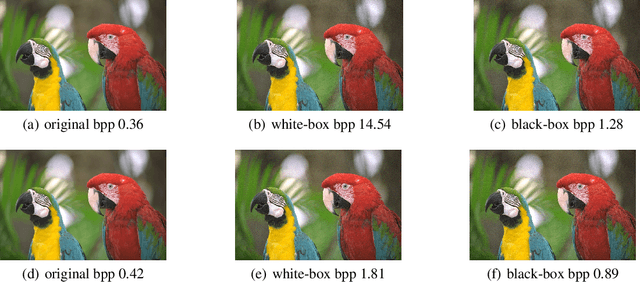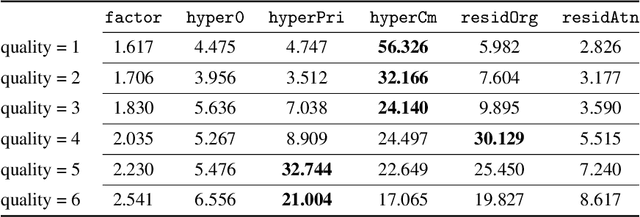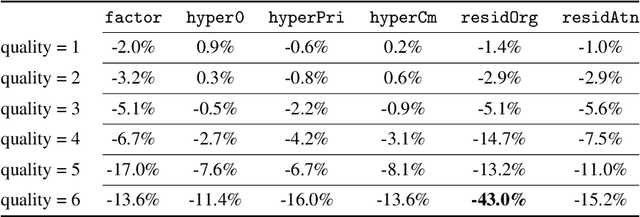Denial-of-Service Attacks on Learned Image Compression
Paper and Code
May 26, 2022



Deep learning techniques have shown promising results in image compression, with competitive bitrate and image reconstruction quality from compressed latent. However, while image compression has progressed towards higher peak signal-to-noise ratio (PSNR) and fewer bits per pixel (bpp), their robustness to corner-case images has never received deliberation. In this work, we, for the first time, investigate the robustness of image compression systems where imperceptible perturbation of input images can precipitate a significant increase in the bitrate of their compressed latent. To characterize the robustness of state-of-the-art learned image compression, we mount white and black-box attacks. Our results on several image compression models with various bitrate qualities show that they are surprisingly fragile, where the white-box attack achieves up to 56.326x and black-box 1.947x bpp change. To improve robustness, we propose a novel model which incorporates attention modules and a basic factorized entropy model, resulting in a promising trade-off between the PSNR/bpp ratio and robustness to adversarial attacks that surpasses existing learned image compressors.
 Add to Chrome
Add to Chrome Add to Firefox
Add to Firefox Add to Edge
Add to Edge